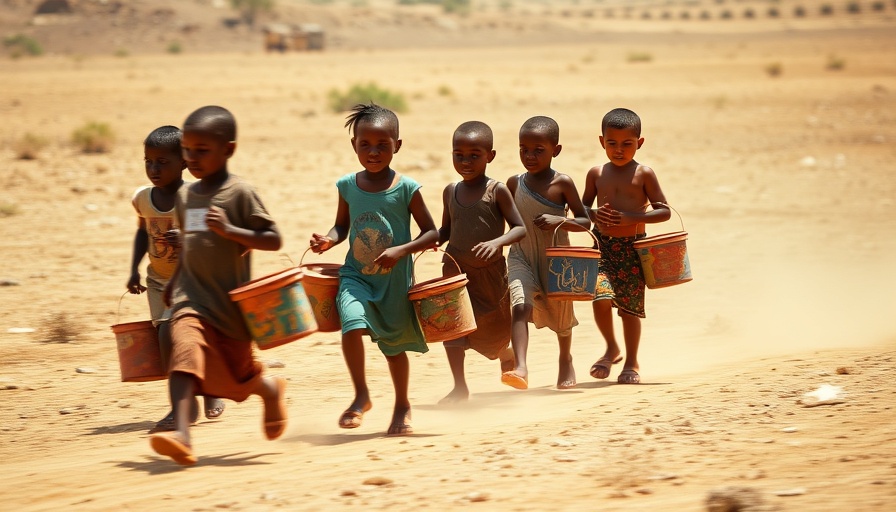
Child Labor Crisis: A Stark Reality
The ambitious goal to end child labor by 2025 has become another chapter of disappointment, as global statistics reveal that approximately 160 million children are still caught in the grips of labor, often in perilous conditions. Despite some progress over recent decades, recent years have shown a troubling regression, particularly in sub-Saharan Africa, where the rise in child labor continues unabated. While Asia has made strides toward improvement, the sobering reality in parts of Africa underscores how deeply entrenched issues such as poverty and inequality hamper meaningful change.
In '160 Million Children Still Working as World Misses 2025 Child Labour Target,' the discussion dives into the alarming persistence of child labor, prompting a deeper analysis of its causes and implications.
Underfunded Schools and the Cycle of Poverty
The multifaceted nature of child labor is compounded by the alarming cuts to funding for education and family support programs. School closures and reduced educational opportunities leave families in dire straits, forcing them to send children to work as a means of survival. This vicious cycle perpetuates a lack of education, limiting future opportunities and further entrenching poverty.
Global and Local Responsibility: Enforcement of Laws
UNICEF has advocated for the reinforcement of legal safeguards to protect children, but advocates like Hendrik Makanita emphasize that the existing laws seem ineffective due to weak enforcement. With children often working undetected in agriculture and informal sectors, the lack of regular oversight scuttles efforts to uphold laws designed to protect their rights. Stronger law enforcement, community engagement, and greater accountability from employers are necessary to combat this issue effectively.
Gender Dynamics in Child Labor: A Hidden Epidemic
Statistics reveal a concerning gender disparity in child labor, with boys more commonly found in paid labor, while girls are often relegated to unpaid domestic work. This unseen burden not only hampers girls' educational opportunities but also compromises their development and future prospects. Advocates argue that it is essential for policies addressing child labor to include both paid and unpaid work, emphasizing a holistic view that recognizes the myriad ways children, particularly girls, are burdened.
The Role of Climate Change in Child Labor
Climate change acts as a significant exacerbating factor in the child labor crisis, as unpredictable weather patterns and natural disasters lead families to resort to child labor for survival. With the G20 summit underway in South Africa, there is an urgent call for global leaders to address climate adaptation and rural development specifically aimed at supporting vulnerable communities. Rethinking development programs to alleviate the dependencies on child labor is crucial to achieving meaningful progress.
The Importance of Including Children’s Voices
One glaring absence in policymaking is the lack of direct input from the children affected by labor conditions. Engaging children in discussions around policy is fundamental to creating effective and empathetic frameworks that reflect their realities. In countries with democratic structures, this input can shape legislative action that prioritizes the welfare of children, particularly in vulnerable communities. Advocacy for children's rights will strengthen efforts aimed at enhancing their protection and inclusion.
Looking Ahead: A Call for Collaborative Action
The failure to meet the target for 2025 raises pressing questions about the credibility of future commitments. The African continent finds itself at a crossroads where it must confront persistent economic challenges, fight inequality, and revitalize its educational systems to ensure that future generations can thrive without the burden of labor. The way forward necessitates the collaboration of governments, civil society, and the private sector to craft comprehensive solutions that address the root causes of child labor.
As the deadline for the targets approaches, the question remains—what will it take to ensure that children are no longer forced into labor? The complexity of the issue demands a multifaceted approach, spearheading advocacy, enhanced enforcement of existing laws, and community-level engagement to provide children with the futures they deserve.
 Add Row
Add Row  Add
Add 


Write A Comment